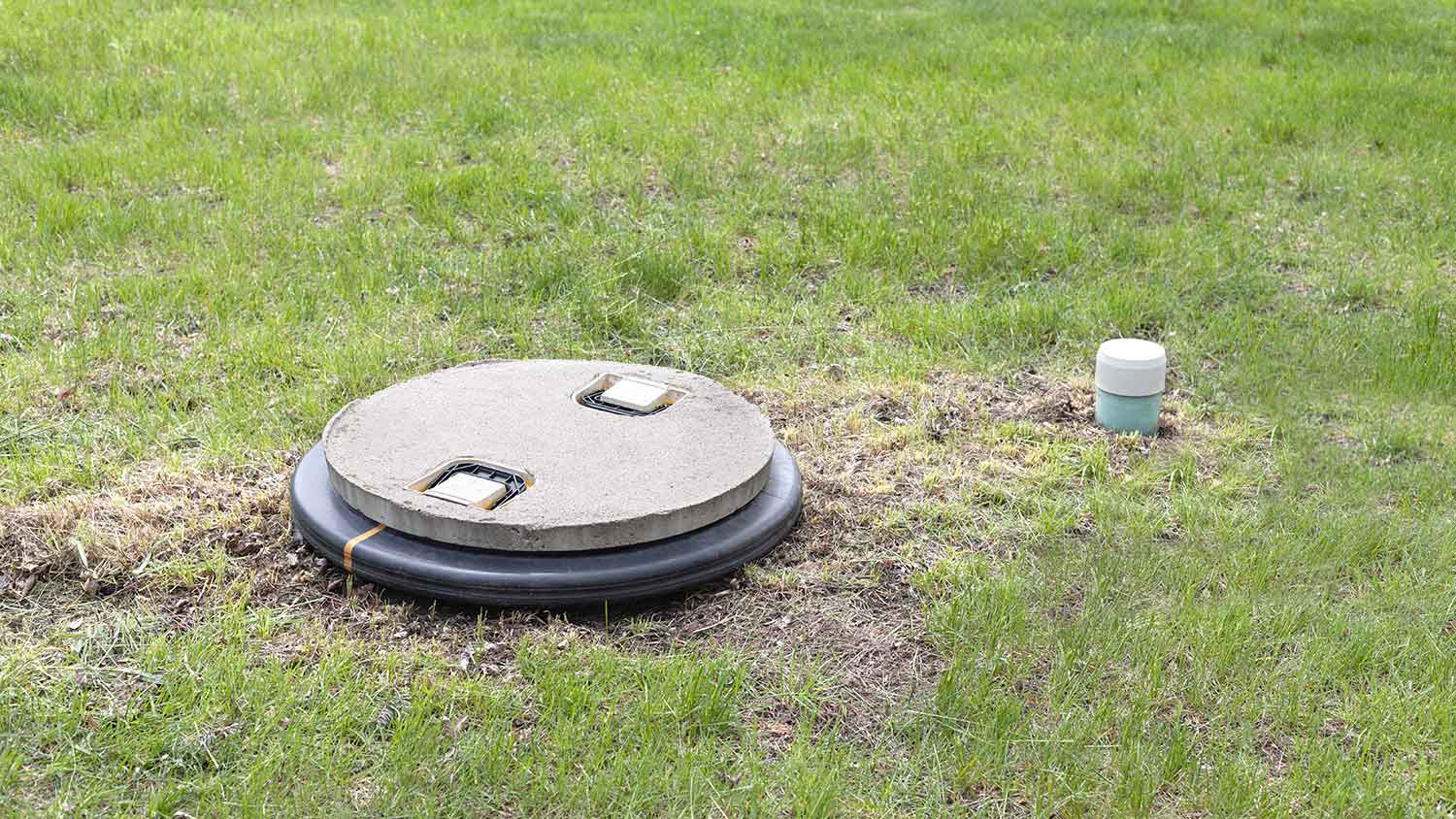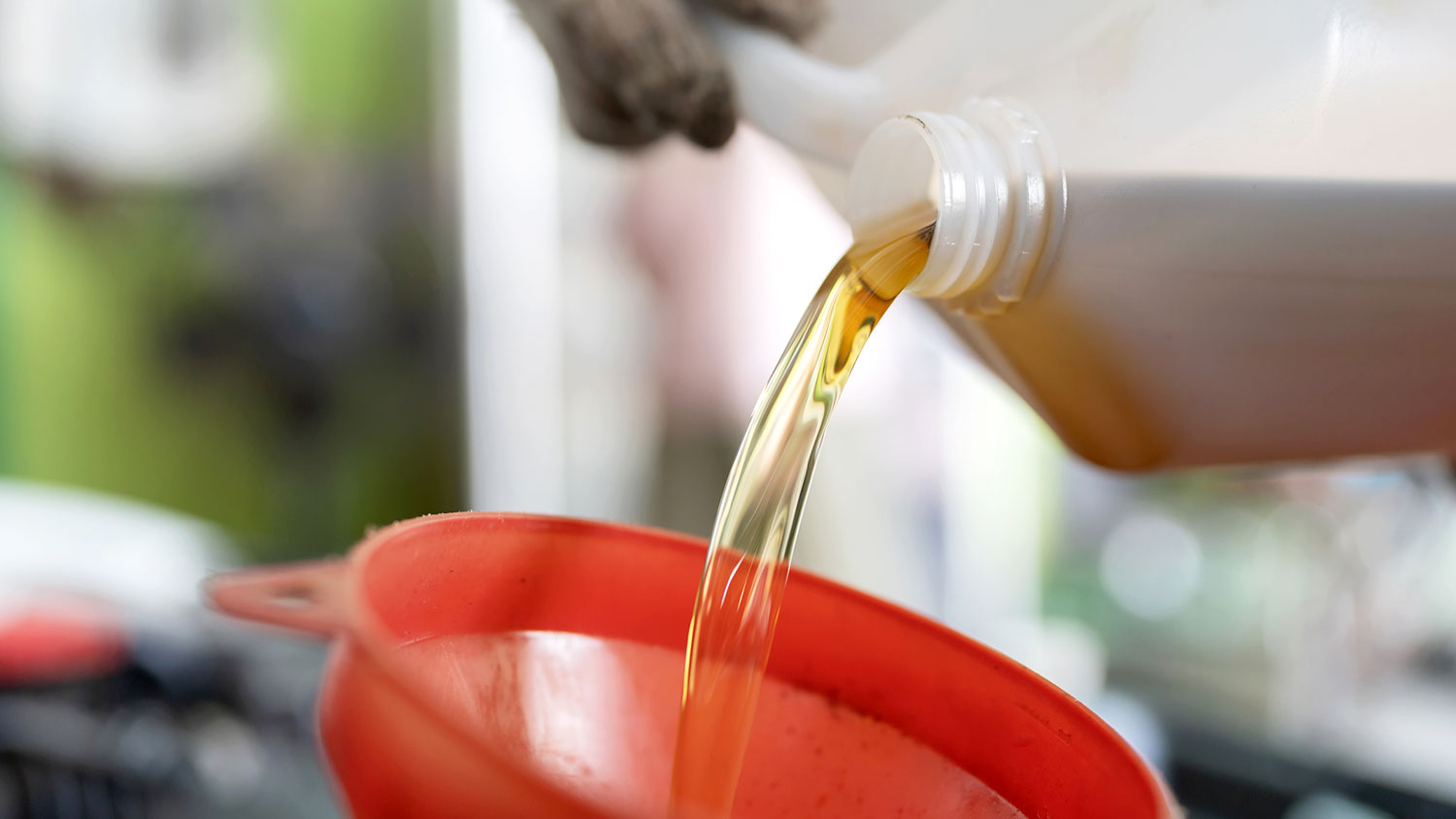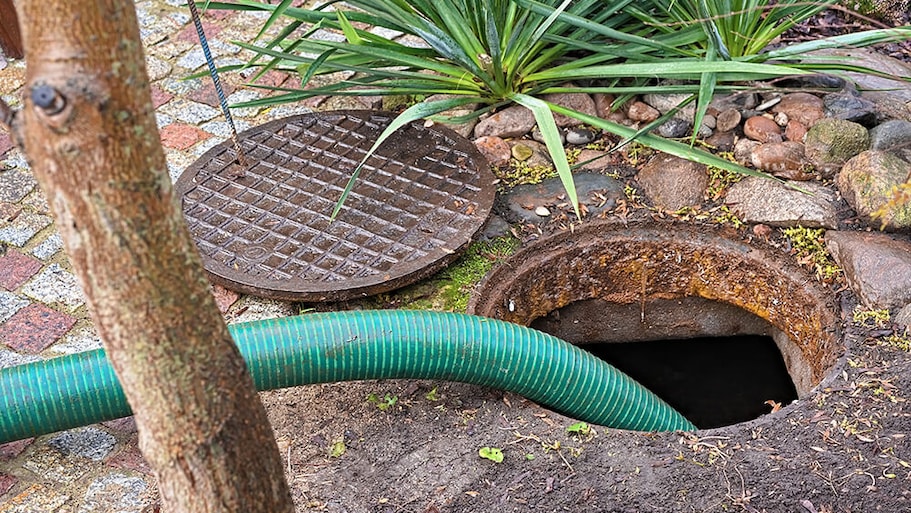Does Homeowners Insurance Cover Septic Systems?
Understand where you are and aren’t protected


Septic system damages covered by insurance include those caused by weather, fire, and vandalism.
Improper use or damage from a bad installation are examples of septic issues not covered by insurance.
Regular inspections, landscaping, and avoiding flushing problematic materials will help you avoid damages that aren’t covered.
Septic systems are fundamental to the proper functioning of a home, so it’s natural to wonder if your septic system is covered by homeowners insurance. Your plan will protect your tank and wallet from plenty of common issues—from frozen pipes to fire damage—but there are a few instances where you’ll be left to sort it out on your own.
So, does homeowners insurance cover septic systems or not? You’ll find all the answers you’re looking for in this guide, plus tips to avoid damages that aren’t covered.
Does Homeowners Insurance Cover Septic Systems?
The short answer is yes, homeowners insurance covers the most common septic system damages, like those caused by bad weather, accidents, and anything inflicted by non-residents, like vandalism or property damage. The exact amount covered will depend on your specific policy, but you can often expect insurance to take care of up to $50,000 worth of damages to septic systems.
There are only a few instances where you won’t be insured, and those are caused by preventable issues, like flushing substances that can harm your tank or pipes—like oil and chemicals. Landscaping causes, such as overgrown tree roots causing collapse, are also not typically covered. Insurance likely won’t cover normal wear and tear, either. So when your tank has run its course—after about 20 years on average—your only option will be to cover the cost of a new septic system altogether.
What Kind of Septic Damage Does Insurance Cover?
The good news is that most common septic system damages are covered by homeowners insurance. Here’s what to know.
| Septic Damage Covered by Insurance | Septic Damage Not Covered by Insurance |
|---|---|
| Fire or electrical damage | Damage from misuse |
| Explosions | Normal wear and tear |
| Weather damage | Landscaping issues |
| Frozen pipes | Bad installation |
| Vandalism or damage by others | Flooding and earthquakes |
Fire or Electrical Damage
Septic systems are protected by insurance in case of house fires, sudden lightning strikes, or other electrical issues caused by fallen wiring, for instance.
Explosions
While rare, it is possible for your septic system to explode due to the buildup of methane gas. Fortunately, such damage is covered by homeowners insurance.
Weather Damage
Weather can be unpredictable, but the good news is that your insurance will cover any harm to your septic system inflicted by strong wind, collapse from heavy snowfall, or even volcanic eruptions.
Frozen Pipes
If your pipes freeze and burst at sub-zero temperatures, this is another septic system issue that your insurance will handle for you. Even though you won’t have to pay, it’s still a good idea to learn how to prevent your pipes from freezing.
Vandalism or Intentional Damage by Non-Residents
Damage done to a septic system by a non-resident—whether that be vandalism or as a result of a third party working—is often covered by insurance.
What Septic Tank Damage Isn’t Covered
Now that we’ve covered what kind of septic system damage is covered by insurance, here are all the issues that aren’t.
Damage Caused by Improper Handling

The homeowner is responsible for resolving any issues that arise from misuse of a septic system. That includes flushing or draining substances that shouldn’t go into pipes, like oils, chemicals, paint, or solid substances—like feminine hygiene products or diapers.
Normal Wear and Tear
All systems decay over time, and your insurance is not responsible for septic system damages due to old age.
Landscaping-Related Issues
It’s the homeowner’s responsibility to ensure that the drain field for a septic system remains clear of potential obstructions like overgrown tree roots.
Bad Installation
If your system was improperly set up in the first place, it’s that much more likely that damages will occur. If an issue can be traced back to a bad installation, you’ll be responsible for paying to fix it.
Flooding and Earthquakes
Damage from flooding and earthquakes is not covered by standard insurance. You must apply for an additional plan that covers these two issues, or your septic system will not be insured in the event they do occur.
4 Tips for Maintaining a Septic System
Use these septic system maintenance tips to avoid damages that aren’t covered.
1. Regularly Inspect
It’s a good idea to give everything in your home the occasional check-up, including septic systems. But how often should you inspect a septic tank? Just once every two to five years will be enough to keep it in working order. Don’t do it yourself, though, as that can be hazardous to your health and the system itself. Instead, hire a septic tank company near you to do the dirty work for you.
2. Manage Water Use
Minimizing your water use is another good way to avoid overloading your septic system and breaking it. That means taking steps to not unnecessarily run the tap—like when you’re brushing your teeth—and optimizing when you do things like loads of laundry or dishes. Instead of doing a bunch at once, aim to do them every couple of days.
3. Avoid Flushing Certain Substances
Oil, paint, chemicals, and solids like cat litter should never be flushed or poured down a drain because these can clog your septic tank and lead to water (and more) coming back up.
4. Maintain a Clear Drainfield
Septic systems are installed in the ground, also known as the drain field, so it’s important to tend to these areas regularly. This involves removing excess tree roots before they overgrow and ridding your yard of pests that dig holes, like groundhogs and moles.
Frequently Asked Questions
Septic systems can last anywhere from 15 to 40 years and even longer with proper care. However, accidents caused by weather or fires can drastically shorten this lifespan, and it may not reach its full potential without regular inspections and proper maintenance, like pruning back overgrown tree roots.
Your garbage disposal will only affect the health of your septic tank if you’re using it too frequently, or filling it with organic waste that doesn’t fully break down. If the tank fills up with too many solids, the bacteria won’t have enough time to consume it before more is added, which can lead to an overflow in the drain field. Your tank will need to be pumped more frequently with excessive or improper garbage disposal use.
Provided your system is not damaged and you’re using it properly, a septic tank only needs to be pumped every three to five years. Find out who pumps septic tanks in your area, because this is not the kind of job you can DIY. Attempting to do so can put your health and that of your system at risk.















